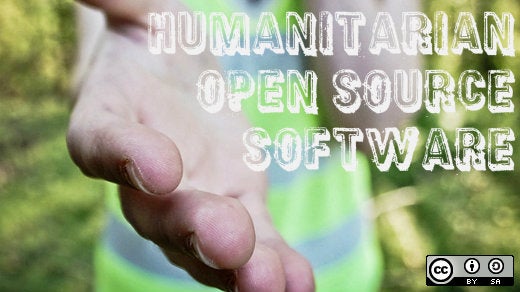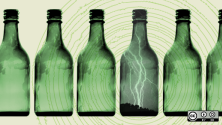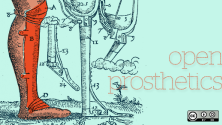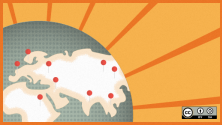A few months ago, we profiled open source projects working to make the world a better place. In this new installment, we present some more humanitarian open source projects to inspire you.
Humanitarian OpenStreetmap Team (HOT)
Maps are vital in crises, and in places where incomplete information costs lives.
Immediately after the Haiti earthquake in 2010, the OpenStreetMap community started tracing streets and roads, place names, and any other data that could be traced from pre-earthquake materials. After the crisis, the project remained engaged throughout the recovery process, training locals and constantly improving data quality.
Whether it is tracking epidemics or improving information in a crisis, the crowdsourcing mappers at HOT are proving invaluable to aid agencies.
Literacy Bridge
Founded by Apache Project veteran Cliff Schmidt, the Literacy Bridge created the Talking Book, a portable device that could play and record audio content.
Designed to survive the rigors of sub-Saharan Africa, these devices have allowed villages to learn about and adopt modern agricultural practices, increase literacy rates, and allow villages and tribes to share their oral history more widely by recording and replaying legends and stories.
Apache Software Foundation Vice President Noirin Shirley talked about Literacy Bridge during her speech at the Open World Forum:
Human Rights Data Analysis Group
This project recently made headlines by analyzing the incidences of reported killings by police officers in the United States. By performing statistical analysis on records found after the fall of dictatorial regimes, the organization sheds light on human rights abuses in those countries. Its members are regularly called upon as expert witnesses in war crimes tribunals. Their website claims that they "believe that truth leads to accountability."
Sahana
Founded in the chaos of the 2004 tsunami in Sri Lanka, Sahana was a group of technologists' answer to the question: "What can we do to help?" The goal of the project has remained the same since: how can we leverage community efforts to improve communication and aid in a crisis situation? Sahana provides projects which help reunite children with their families, organize donations effectively, and help authorities understand where aid is most urgently needed.
FrontlineSMS
Where you have no internet, no reliable electricity, no roads, and no fixed line telephones, you can still find mobile phones sending SMS text messages. FrontlineSMS provides a framework to send, receive, and process text messages from a central application using a simple GSM modem or a mobile phone connected through a USB cable. The applications are widespread—central recording and analysis of medical reports from rural villages, community organizing, and gathering data related to sexual exploitation and human trafficking are just a few of the applications which have successfully used FrontlineSMS.
Do you know of other humanitarian free and open source projects? Let us know about them in the comments or send us your story.
FOSS
This article is part of the Humanitarian FOSS column coordinated by Rikki Endsley. To share your projects and stories about how free and open source software is making the world a better place, contact us at open@opensource.com.







1 Comment